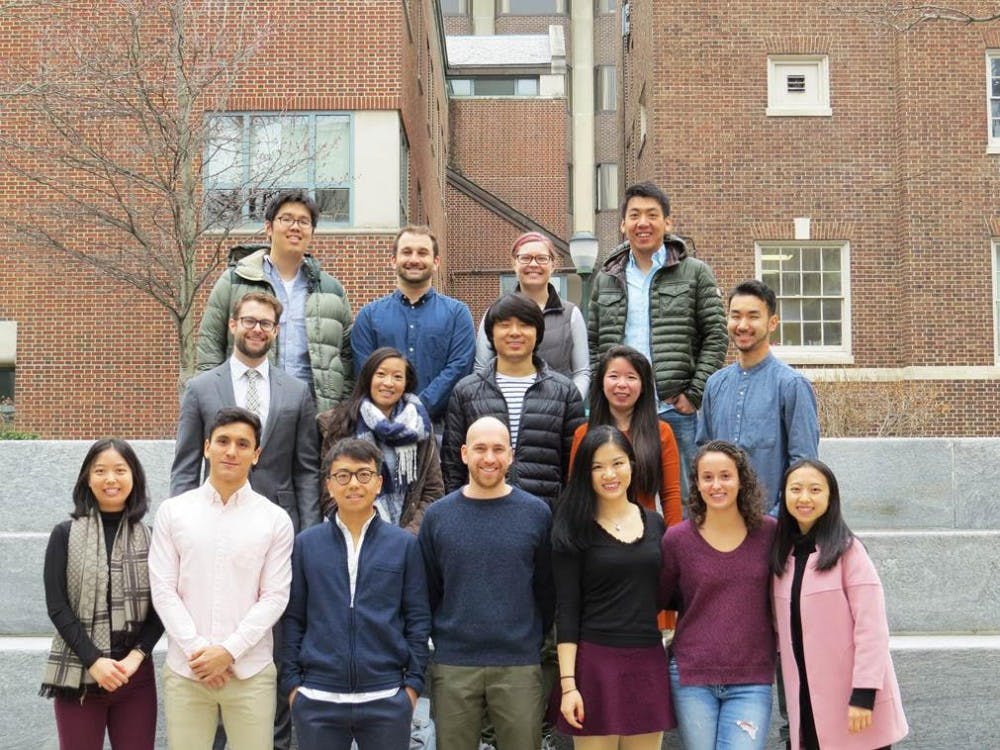
Photo from Ellen Fu
Tanya Paul graduated from the Wharton School’s undergraduate program in spring 2015. By fall, she was already enrolled as an accounting Ph.D. student in Wharton.
Paul is just one of many Penn undergraduates who go on to a Wharton doctoral program shortly — if not immediately — after graduation.
Paul’s interest in academia began during her freshman year at Wharton, when she served as a research assistant to Andy Wu — then a first-year applied economics Ph.D. student and now a member of the Management Department at Harvard Business School.
“[Wu] told me if I was interested in understanding things like implications of corporate decisions and their interaction with capital markets, then accounting might be the way to go,” Paul said.
After two years in the accounting Ph.D. program, Paul is clearer about the benefits and detriments of going immediately into a Ph.D. program — as she did — versus starting out in the working world.
“The pro of working beforehand is that you get a lot of real world knowledge,” Paul said. “On the other hand, coming straight out of undergrad helped the transition into academia to be pretty smooth since I never actually left school.”
2014 Wharton graduate and first-year Wharton Ph.D. candidate Ellen Fu took a different path, spending two years after graduation working in the microeconomic studies function of the Federal Reserve Bank of New York before beginning Wharton’s applied economics Ph.D. program.
“Through those two years, I gained a lot of exposure to the research process,” Fu said. “It was my time at the Fed that compelled me to apply for a Ph.D.”
At the Fed, Fu worked on projects relating to student loans, college major choices and other microeconomic issues.
“It was really useful to understand what issues are important in the real world,” she said. “It made me sure I wanted to pursue this path, because it is a long-term commitment. You don’t want to start it and halfway through realize you don’t like the lifestyle or the nature of the work.”
When deciding whether to pursue her Ph.D. at a business school or a traditional university, Fu was drawn to the small cohort size of programs at Wharton.
“In my class, they only admitted five people total [to the applied economics program], versus a traditional school which has 20 to 25 students per class,” she said.
And for Wharton Ph.D. students, Penn is the single biggest feeder university.
Vice Dean of Wharton Doctoral Programs Catherine Schrand said this is likely due to Penn students’ familiarity with the school.
“Other students might choose to apply to a traditional school’s [economics] or psychology Ph.D. department, not understanding that our marketing and management departments do a lot of psychology-based research,” Schrand said. “If you’re not at a school like Penn where you’ve got a top business school right there on the same property, I’m not sure you would know that as an undergrad student.”
Schrand also acknowledged that Penn undergraduates tend to have a leg up in the admissions process.
“We see the classes they took and we know what those grades mean,” she said. “We’re not just picking them because they’re from Penn, but when we look at two applications and one has reference letters from people we don’t know and another has a reference letter from someone down the hallway, it’s just easier to say yes.”
The Daily Pennsylvanian is an independent, student-run newspaper. Please consider making a donation to support the coverage that shapes the University. Your generosity ensures a future of strong journalism at Penn.
Donate




